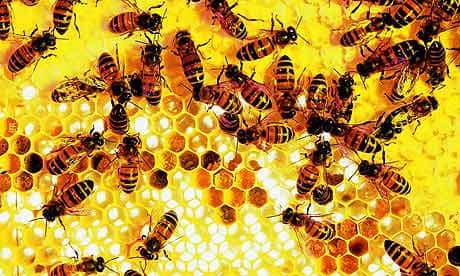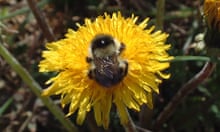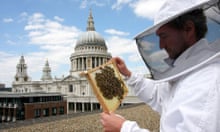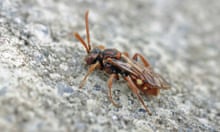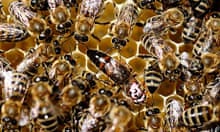Bees can solve complex mathematical problems which keep computers busy for days, research has shown.
The insects learn to fly the shortest route between flowers discovered in random order, effectively solving the "travelling salesman problem" , said scientists at Royal Holloway, University of London.
The conundrum involves finding the shortest route that allows a travelling salesman to call at all the locations he has to visit. Computers solve the problem by comparing the length of all possible routes and choosing the one that is shortest.
Bees manage to reach the same solution using a brain the size of a grass seed.
Dr Nigel Raine, from Royal Holloway's school of biological sciences, said: "Foraging bees solve travelling salesman problems every day. They visit flowers at multiple locations and, because bees use lots of energy to fly, they find a route which keeps flying to a minimum."
Using computer-controlled artificial flowers to test bee behaviour, his wanted to know whether the insects would follow a simple route defined by the order in which they found the flowers, or look for the shortest route.
After exploring the location of the flowers, the bees quickly learned to fly the best route for saving time and energy.
The research, due to appear this week in the journal The American Naturalist, has implications for the human world. Modern living depends on networks such as traffic flows, internet information and business supply chains.
"Despite their tiny brains bees are capable of extraordinary feats of behaviour," said Raine. "We need to understand how they can solve the travelling salesman problem without a computer."
